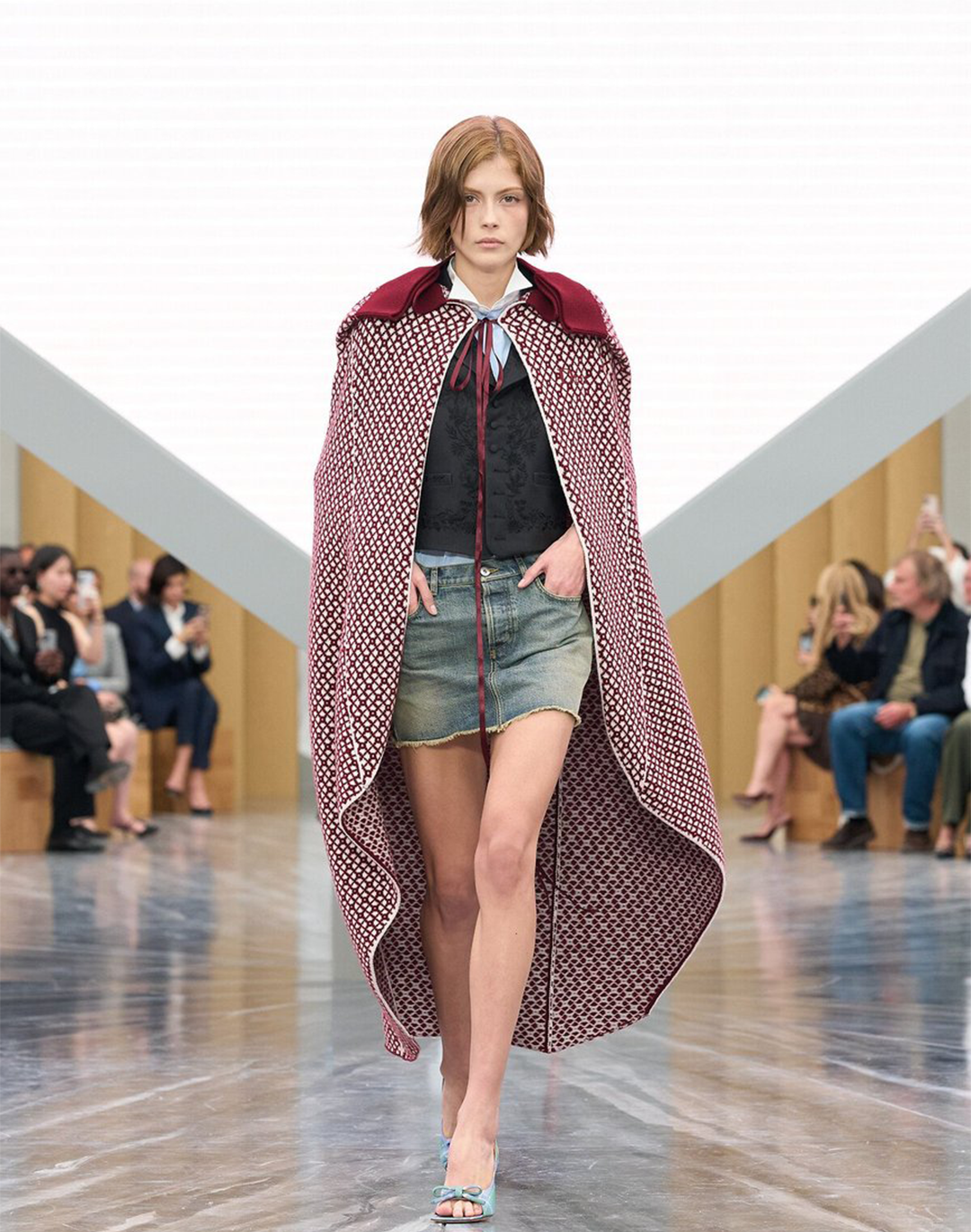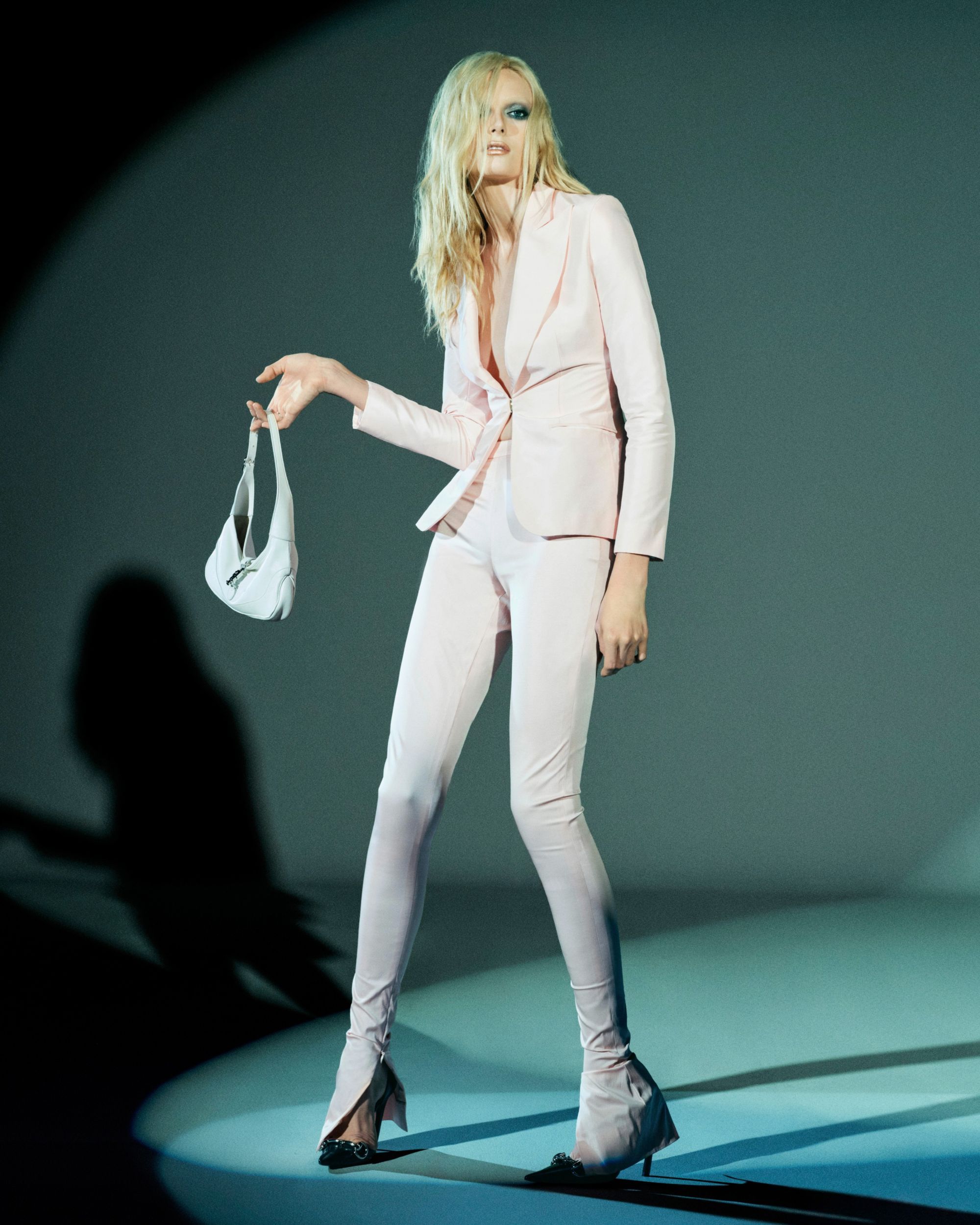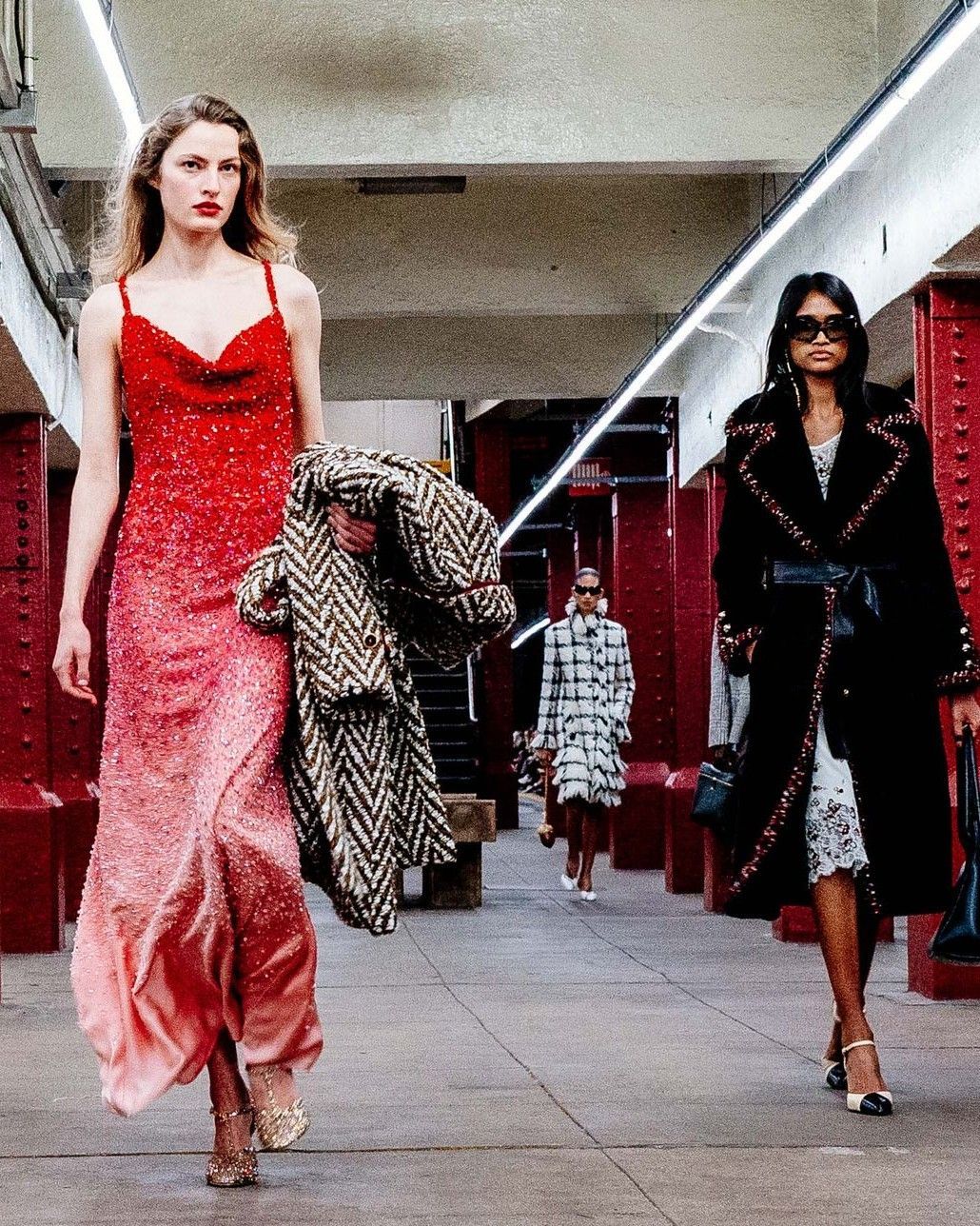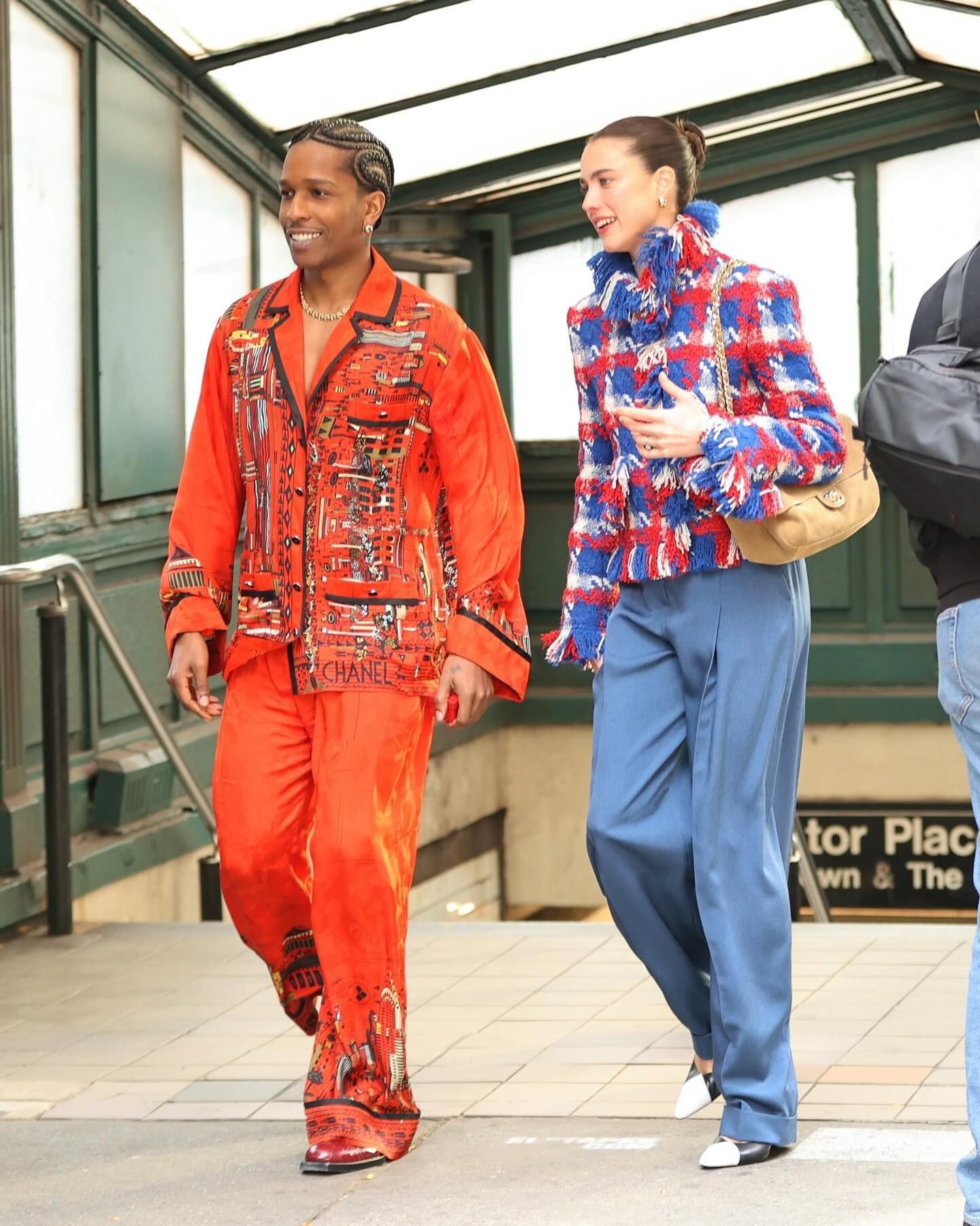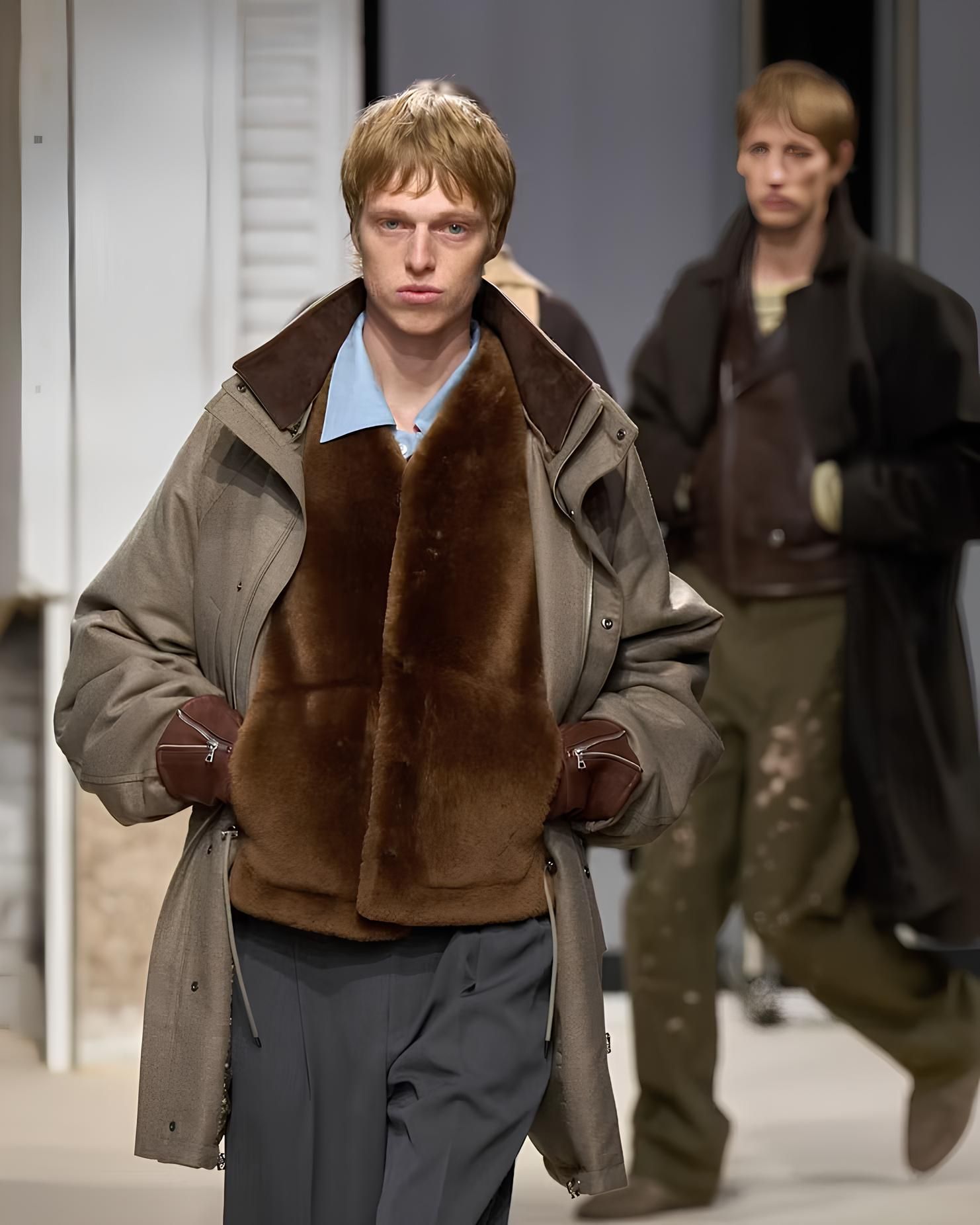
Diesel's voyuristic dissipation of FW24 When distressing becomes virtuosity
What does "deconstruct" mean? The term is one of the most overused in the marketing and PR dialect and is used to describe a little bit of anything - but it is not a vague term for Glenn Martens, a designer who is used to taking the architecture of what is already known and intuiting its inner workings, then subverting them. And deconstruction was a strong point of the concept of Diesel's latest show - a show we should perhaps call an "experiment" given that for the occasion not only was the entire process of production, location set-up, styling and casting visible 24 hours a day on the brand's website for three full days, but a thousand outside observers from around the world were watching the show and its guests in a kind of epic call on Zoom, with their faces scrolling through the wall-high screens that dotted the runway. The same pattern of faces intent on a video call also reappeared on several garments from the collection.
Girls, boys, at least a couple of dogs, someone wearing an alien mask: the concept of observing and being observed, at the heart of the show, was precisely intended to deconstruct the classical hierarchies of the gaze by transforming the observers from home into a kind of interactive grand wallpaper and the show's guests into the observed objects. The idea was to make people see, as it were, the theater from the side of the wings or the dress from the side of the seams - which is also part of the collection Martens brought to the stage. In fact, the show notes state that the intent of the collection was to show «our hidden sides opening up, bringing out the inner part». To make the situation more alienating, making the usually hidden elements the pivot of the show, a robotic voice gave the order of the models' exit on the catwalk in complete silence, so much so that it suggested an audio glitch, making the inversion of perspective that the Belgian designer was suggesting his audience adopt even more evident.
A type of inversion that was applied, following the same conceptual line, on clothes: dresses and shirts with dévoré fabric that thinned until it became transparent, revealing its weave along with the underwear and the bodies underneath it; long floral dresses with a worn effect from which animal prints emerged, denim that revealed the legs with transparent, impalpable inserts; fabrics overlaid and made alien by treatments that simulated wear and tear; synthetic parkas intersected with sweaters; leopard furs whose hems were transformed into ultra-lightweight fabrics; delicate dresses with puffed sleeves whose fabrics were burned revealing other fabrics underneath in contrasting colors; and, conversely, smooth-textured pieces that instead had the villous texture of mohair. But also blazers whose different panels were an alternation of denim and leather, jackets with a resected collar with a raw hem, organic fabrics covered with a coat of synthetic finish, very bon ton dresses that suddenly became provocative thanks to the revelation of their texture, and, to close the show, a series of monumental fur looks that took the archetypes of everyday clothing and made something primal, tribalistic out of them. Martens' virtuosity created the overall impression of peeling surfaces revealing others-the key to this collection's aesthetic was precisely dissipation, the identification of dynamism in the intermediate state of a transformation.







































































































